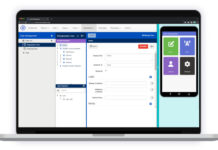In today’s digital age, the media and communication industry in South Africa is experiencing a major transformation, thanks to the rise of big data. Big data has become a game-changer for the industry, offering unprecedented opportunities to understand audience behaviour, personalise content, and optimise advertising strategies.
From audience insights to targeted advertising, the possibilities of big data are endless. Media and Communication Enthusiast, Andile April writes about how big data is shaking up the South African media and communication industry.
The media and communication industry in South Africa has long been known for its diverse and dynamic nature, with a wide range of print, broadcast, and digital platforms catering to the needs and interests of different demographic groups. However, the industry has faced challenges in understanding and engaging with its audience on a deeper level.
Enter big data. With the help of advanced analytics and data mining techniques, media companies in South Africa are now able to gather and analyse massive amounts of information about their audience’s preferences, habits, and interactions with content. This wealth of data is invaluable for understanding what content resonates with the audience, which platforms they prefer, and how they engage with advertising.
One of the most significant impacts of big data in the South African media and communication industry is the ability to personalise content and recommendations for the audience. By leveraging the power of data analytics, media companies can create targeted content that is tailored to the specific interests and preferences of their audience segments. This not only enhances the audience’s experience but also increases engagement and loyalty.
Further, big data has revolutionised advertising in the media and communication industry. With the ability to accurately target and measure the effectiveness of advertising campaigns, media companies can now offer highly targeted and relevant advertising opportunities to their clients. This not only benefits advertisers by reaching the right audience but also helps media companies maximise their advertising revenue.
In addition to content personalisation and advertising optimisation, big data is also being used to improve operational efficiency within media companies. From optimising distribution channels to streamlining production processes, data-driven insights are helping media companies make more informed and strategic decisions to enhance their overall performance.
However, as with any revolutionary technology, the adoption of big data in the South African media and communication industry also presents challenges. Data privacy and security issues are at the forefront, as media companies must navigate the ethical and legal implications of collecting and utilising consumer data.
Moreover, the industry must also address the skills gap in data analytics and management. To fully harness the potential of big data, media companies need skilled professionals who can effectively interpret and apply data insights to drive growth and innovation.
In conclusion, big data is undoubtedly revolutionising the South African media and communication industry. With its potential to personalise content, optimise advertising, and enhance operational efficiency, big data is empowering media companies to better understand and engage with their audience. However, as the industry continues to embrace big data, it must also address the associated challenges to ensure the responsible and ethical use of consumer data. By doing so, the South African media and communication industry can truly leverage the power of big data to drive its future growth and success.
Article Provided




























